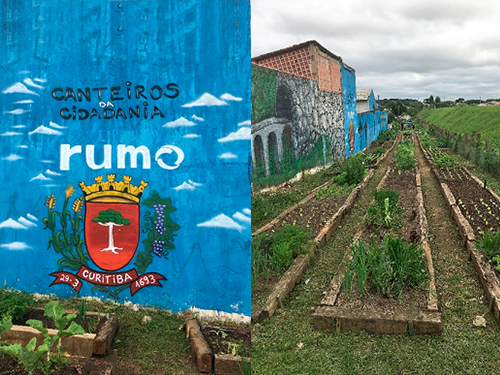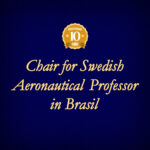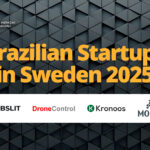The concept of circular economy has emerged as part of efforts to implement the sustainable global development. What is the role of the bio-economy in forming a circular economy in cities? A consortium of Swedish and Brazilian partners explores potential trajectories starting with the city of Curitiba, Brazil.

One of the pressing challenges faced by urban areas is related to solid waste management. Approximately 70% of the global waste is generated in cities. A significant share of this waste is organic, and can be part of an overall circular cycle.
In this context, bioenergy can transform some of the challenges connected to waste into opportunities. Such transformations can have major impact on resource efficiency and emissions of greenhouse gases.
Pathways to achieve sustainable waste management should follow a hierarchy of waste reduction, reuse, recycle and recover of materials and energy. To explore that in urban bio-based systems, a joint-project is being developed by Royal Institute of Technology (KTH) and Brazilian organizations within academia as well as public and private sectors under the MoU between KTH and the City of Curitiba.
The project is closely linked with the creation of a reference center for urban agriculture in Curitiba, which was announced during the Sweden Brazil Innovation Weeks 2017 by the Mayor Rafael Greca.
Curitiba has long pioneered urban sustainability solutions. The mobility concept around bus rapid transit is well known to the international community. But the city has also pioneered innovative social and environmental actions which are highly interesting in the SDG (Sustainable Development Goals) agenda. Previously, Curitiba developed a successful program for low-cost food production in the metropolitan area. The city also initiated various campaigns to address waste disposal.
Municipal authorities recognize that rethinking the city’s waste management systems has the potential to generate social, economic and environmental benefits. Therefore, the city is now engaged in exploring the links between urban food production and solid waste management. The idea is to develop a bio-based circular recovery model for cities.
By using Curitiba’s existing social schemes, it applies a bottom-up approach to link social and environmental agendas at the local level. Local initiatives are combined with scientific knowledge to explore new development pathways that address both local and global development goals.
The project will enhance understanding about the concept of a circular bioeconomy, and the requirements for implementing the necessary transformations in cities. Ultimately, the results will provide a framework to support cities develop effective solid waste management. Curitiba is a great place to start. The lessons will be certainly valuable for other cities in Brazil and around the world.
The project started in January 2018 and will last 4 years with funds from FORMAS (Swedish research funding organization). The project is led by Professor Semida Silveira at KTH Royal Institute of Technology and Professor Selma Cubas at UFPR (Federal University of Paraná). Other participating institutions include Federal Technology University of Paraná (UTFPR) and the Secretariat of Environment of Curitiba (SMMA). For more information visit https://www.kth.se/en/itm/inst/energiteknik/forskning/ecs/projects/bio-based-circular-e




